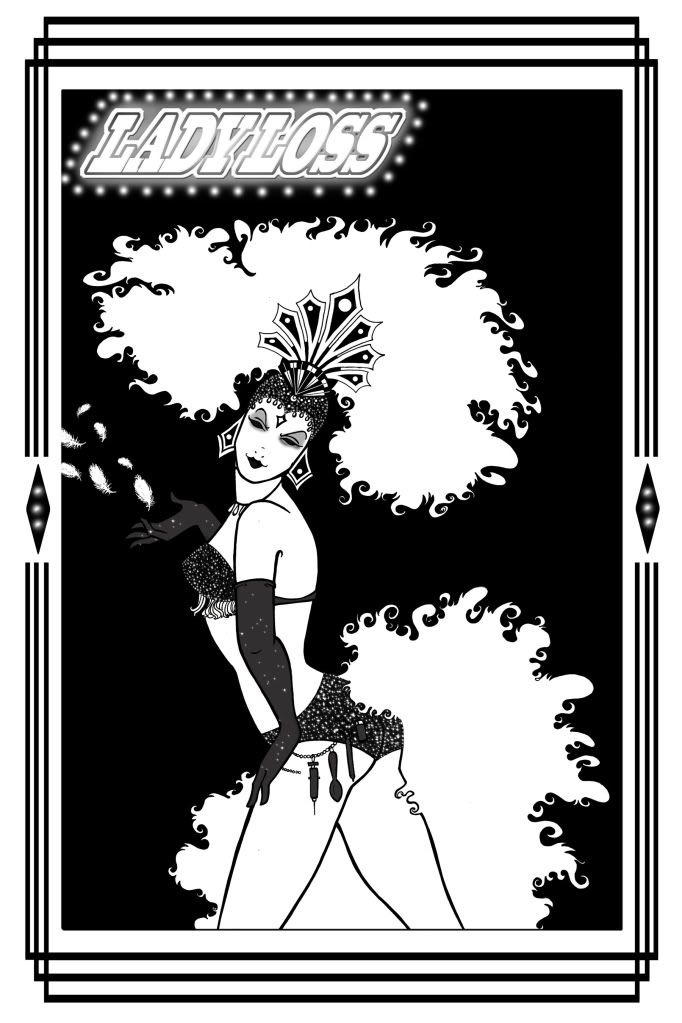
Almost every story I write comes from multiple seeds that seem unrelated, but collide in my head. Like temporal lobe epilepsy, quantum physics, a certain waiter, and a particular habit of Charles Fort’s did to create “Valentines”. In this case, there were two particular things.
The not-deeply-personal thing: At PiCon, in August 2011, I was on a panel about quests, and I mused that really, we don’t often see what happens after the quest. We see a happy return to the everyday world, and we see that someone has gained Courage and Wisdom and Insight, but we don’t see any negative effects, and we leave our adventurers immediately after, when they are oh so happy to be home. But what happens later? And what happens if things don’t work?
More personally: I used to live in Vegas, and I still have a deep attachment to it and its broken beauty. Every so often, when I’m in a particularly masochistic frame of mind, I google people I knew. Nine times out of ten I get an obituary. We were not living good lives back then; this is no surprise. I got out only because I got pregnant and had a flash of common sense. I left, in fact, the very day I found out I was pregnant. I lack closure… so I write about Vegas a lot.
In August of last year, for the first time in many years, I got a hit on the most important personal in my Vegas-life. And it was his obituary.
I’d thought he was already dead a dozen times before. Rumors. I heard he’d ODed, I heard he’d been shot, and I had years between looking for anything under his name, because I just couldn’t. So I honestly, at this point, did not think he had been alive for a bit. But he was.
And he had a family, a wife and stepkids.
And I… I had this unexpected surge of horrible grief, because once upon a time I loved him, and he is a huge part of a hugely important part of my life. But also, seeing the picture of him with his wife and kids, I thought, “I am not entitled to this grief. They lived with him for years, they were his family, I am a fragment – they lost a husband and a father. I lost a memory, a story I tell myself.”
It took me a while to allow myself the grief.
He was theirs more. But he was important to me. And he was one of the last remnants of this incredibly intense, surreal, often terrible thing that has shaped my life.
So when I allowed myself to accept the emotions and not judge them, I got ambushed by story one day and sat down and wrote “Splinter” all in one surge, one violent outburst. I vomited forth – sorry for the imagery, but I had about that much control over the proceedings – this thing, this cry of pain and loneliness. I did it because no one else was left who knew.
And then I sat on it for months, because what is this thing? Who would want it?
I met Lynne and Michael Thomas of Apex Magazine at Wiscon this May, and we befriended each other on social media. So when, this June, I came across “Splinter” in my files and wondered aloud on Twitter who would want something so short, dark, twisty, whatever, they both told me to send it to them.
So I did.
And here it is.
“Splinter” was published in Apex Magazine in November 2012. It’s on Tangent Online’s 2012 recommended Reading List.
—
Cyd Athens at Tangent Online says: “Shira Lipkin’s “Splinter†evokes fear without ever showing the actual source. Rather, it relates what happens after a group of travelers step off the edge of the world. Whether what they encounter is alien, magical, or paranormal is left to the imagination. Beginning with an intrepid group of five best friends, each section of the story focuses on a single member. One by one, we learn of the aftereffects of an experience so horrible as to make consideration of a return trip unthinkable. The tale is narrated by the last one standing. This fast read is strong, evocative, and disturbing in a way that makes one want to read it again.”
Carrie Cuinn says: ““Splinter†by Shira Lipkin is short and blunt, to the point, and a perfect piece of flash fiction (though I think it may have a few too many words to strictly be called “flashâ€). It’s a moment, a conversation, a story, a thing that happened, and it says just enough to be all of those things without having to be anything else.”







